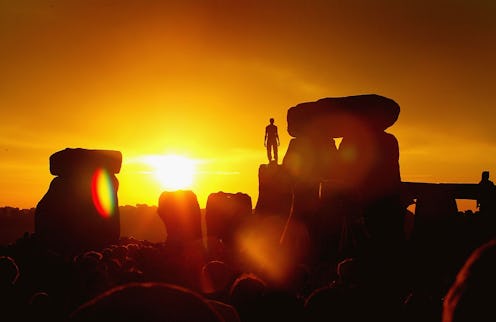
Growing up in the middle of the southern New Hampshire woods, I became fond of star-gazing. In the summer, my high school boyfriend and I would bring our CD players outside, listening to Weezer, while we gazing up at that infinite dark world, full of endless possibilities and beauty. As the hours passed, the stars would slowly disappear, only to be replaced with a single 600 billion year old star that was out for vengeance, making us quickly recoil into the shade. To my knowledge, as a teen, the sun was as evil and dangerous as Charles Manson. The threat of wrinkles, skin damage, and skin cancer was enough to make me shun this beautiful star for the rest of my life.
It was no surprise that in my twenties, I became vitamin D deficient, due to years of avoiding the sun and a long-term, strict, vegetarian diet. My first thought? Are you #$%*& kidding me!? They were not. Turns out lack of vitamin D has been found more common in society than over-exposure to sunlight. I would lather on the thickest SPFs I could find, convinced that it would give me timeless skin, having no idea how important vitamin D was for my health. Interestingly enough, the pigment melonin makes it harder to produce vitamin D in sunlight exposure — according to Web MD, studies show this is more likely in darker skin. The only thing more effective than taking vitamin D supplements, or any supplements for that matter, is getting your nutrients directly from the source: In this case, the sun.
Today, I still consider the sun to be a frenemy. The UVA rays age us while its UVB rays burn us. There is a plethora of scientific data out there to prove that overexposure to sun causes premature aging, eye damage, and skin cancers, which means it's super important to keep our skin protected. Still, there are ways to do so while still drinking in the healthy aspects of the sun (like all that delicious vitamin D) and avoid ingredients that are found in sunscreens that can also promote skin cancer and free-radical production. For some of us, wearing over-the-counter sun-screen is a medical no-no. Whether you are on an all-natural diet that requires you to forgo all topical chemicals or have allergies, there are cost-effective and easy ways to make your own sunscreen. Many articles discourage the use of sunscreen altogether, and while some have merit, science is constantly evolving — we still do not understand everything about the sun and how it can effect our bodies.
Here is the great news! If you absolutely can't stand the chemicals or if you have been asked not to use the chemicals in sunscreens by your doctor, there is a healthy all-natural way you can have the same protection as drugstore sunscreen. Whatever you do, just don't go out there without any armor at all! Your skin will thank me in 10 years.
Homemade Sunscreen
Here are some essential ingredients you will need for your homemade sunscreen — please play with the portions to get the right recipe for your skin. If you are looking for more UVA or UVB protection then you'll want to adjust the ratio accordingly.
- 1/4 cup of beeswax (this will give you a nice texture and make it waterproof)
- 2 tablespoons of zinc oxide powder (this will protect you from UVA rays that are known for skin aging)
- 1 ounce of shea butter (for moisture and extra vitamin D)
- 1/2 cup of essential oil (this will be your SPF and protect against UVB rays which are known to cause burning)
My choice oil to protect my skin from UVB rays is coconut oil because it has natural SPF just under 10. If you are looking for extra protection from UVB rays or have an auto-immune disease (the sun is known to flare up symptoms), my fair skinned bestie uses raspberry seed oil which has a natural SPF of about 50. This is a great choice if you burn easily in the sun. Looking for something right in the middle? Carrot seed oil will be your jam, with an SPF of 38-40.
To find out more about which oil is best for your sunscreen, check out Living Pretty Naturally's post on sunscreen oils.